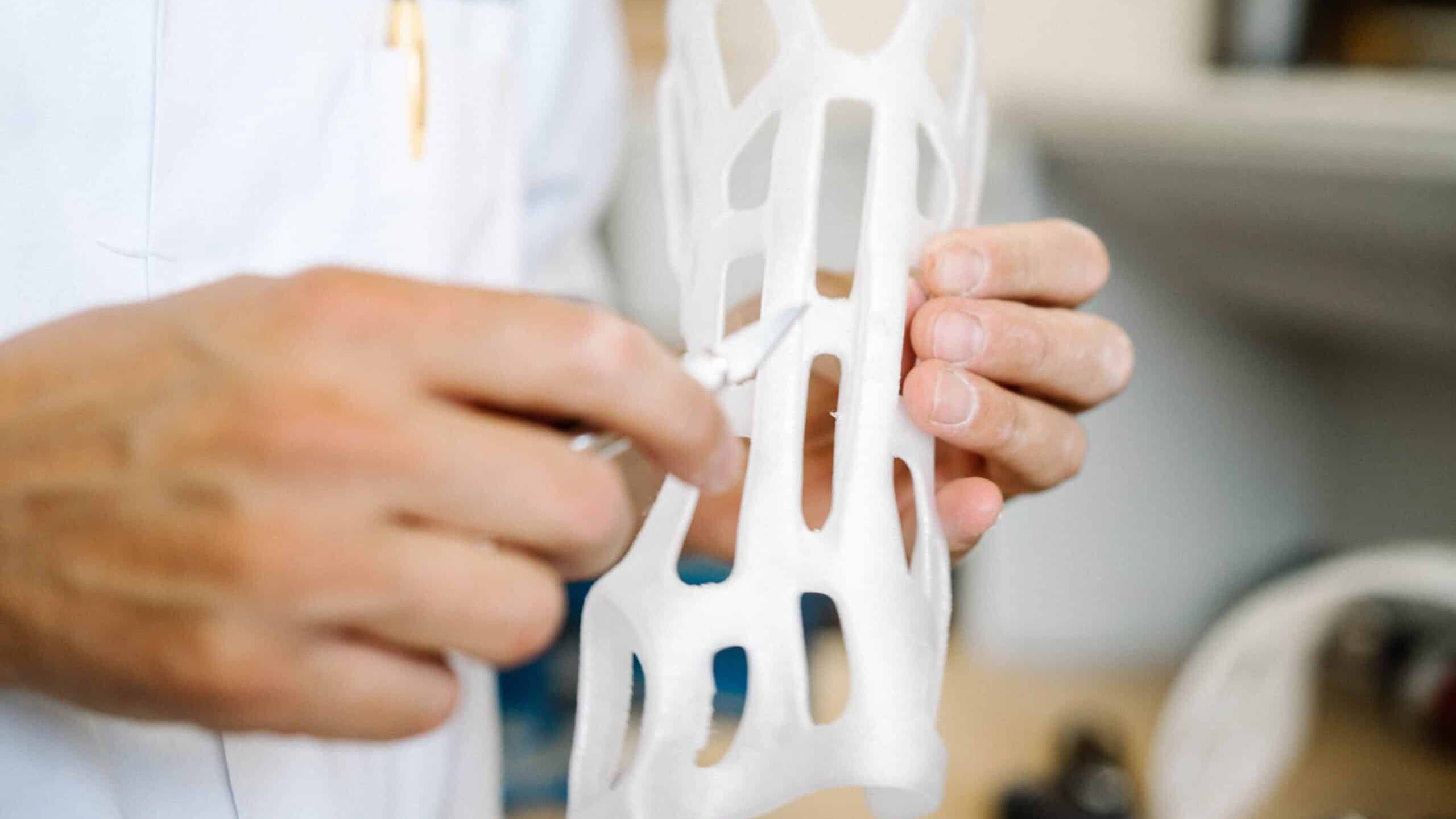In this interview, MedTech expert Karina Candrian explains why startups should think about market access and regulatory topics early on.

Co-founder and CEO, Effectum Medical
Karina has more than two decades of experience in healthcare consulting and business development for MedTech companies. She is co-founder of Effectum Medical and MEDICALBOARD, which provide different service to MedTech startups. Karina is also a startup coach at Innosuisse.
Why have you founded Effectum Medical?
Several years ago, I was part of the team of ETH spin-off Degradable Solutions. The company develops and manufactures resorbable implants. There I experienced the challenges of bringing a MedTech product to market first-hand. I realized that many innovators don’t have any experience with all the steps involved in this process and that there is a need in the market to help them. I wanted to share my experience and I’m also convinced that it is easier to rely on proven solutions that already exist instead of trying to re-invent and build all by yourself.
What kind of solutions?
The quality management system, for example. A MedTech startup needs to document every single step of development of a product, as well as its specifications, in a QMS. An implant, for example, needs to withstand certain forces. No matter if you opt for titanium, steel, or ceramics, you need to document the stress tests that show your implant doesn’t break, and that it is biocompatible, etc. Now, you can try to set up your own QMS, but it is much faster and easier to document everything in an outsourced QMS that is compliant and certified and meets the needs of a start-up in most of the cases. We offer access to our QMS as well as guidance in how to document everything. We also provide lists of qualified suppliers, whether it is packaging, sterilization or other things.
You also act as a legal manufacturer, what does that mean?
This is like an interface between producer and market. The legal manufacturer assures product quality, safety and regulatory compliance. Furthermore, the legal manufacturer is responsible for post market surveillance, complaint handling, vigilance and is liable for the product.
How well has the market reacted to your offering?
We’ve started almost 5 years ago. Back then it took some efforts to initiate a change in the mind-set of the state-of-the-art approach to handle quality management and product certification.2020 was definitely the year when our idea took off. We more than doubled the number of customers and employees, and now employ 18 people. Most of our customers are Swiss, but we also have some German customers and from the US. We plan to expand internationally in the future.
When does a MedTech startup need to start thinking about market access and regulatory topics?
It is very important to think about this early because the intended use and characteristics of a product determine its classification, which again has major implications on the regulatory pathway, budget, and time to market. I recommend thinking about these things as soon as you have found a problem-solution fit.
What if they don’t?
Startups often test a lot of different prototypes and might just take a few notes, because they underestimate the requirements of documentation. They don’t know that they need a proper test plan and detailed test reports. It’s somehow understandable, because they might be familiar with scientific ways of working but lack the knowledge of regulatory compliant documentation. If they need to gather this information retrospectively, they will lose precious time or even have to repeat certain tests.
One of the central mechanisms of medical device regulation is that products get assigned a risk class, depending on how invasive a product is and what risk its failure poses for patients. How do these different categories inform what a startup needs to do?
Let’s look at the difference between a measurement and a treatment recommendation. A product that provides some sort of information to doctors, based on which they will then decide what to do, has a lower risk class than one that gives doctors a treatment recommendation. It might make sense both from a cost and time-to-market perspective to develop just a measurement device first, and then, as a second product generation, go for one that makes treatment recommendations.
“Market access is just one part of the business decision which market to address first.”
The new EU rules are stricter than before. Does it make sense for MedTech startups to aim for regulatory approval in the US first?
It is probably true that in general, EU regulations are now more demanding than US regulations. But market access is just one part of the business decision which market to address first. Yes, the US is a big market with just one language, but you also need the organization and financial means to market a device there. And the devil is in the detail; the classification of a product can differ in those two markets.
The political impasse between Switzerland and the EU is an additional headache for the whole MedTech sector.
Since the Swiss government decided to cease negotiations with the EU on the mutual recognition agreement, every Swiss MedTech company needs an authorized representative in the EU to sell their products, and vice versa. The sad thing about these new regulatory hurdles is that they cost a lot of money and don’t improve patient safety at all.
I suppose that it also isn’t easy to hire people who know about quality management and regulatory affairs?
Most of the people in this domain have an engineering background and learn on the job. It is true that people, who have actual experience with bringing products to the market are usually senior and have high salaries. For a startup, there is the additional question if it can occupy such a person 100%. Therefore, startups often hire juniors and work together with consultants or service providers that can guide these people.
Written by
WITH US, YOU CANCO-INVEST IN DEEP TECH STARTUPS

Verve's investor network
With annual investments of EUR 60-70 mio, we belong to the top 10% most active startup investors in Europe. We therefore get you into competitive financing rounds alongside other world-class venture capital funds.
We empower you to build your individual portfolio.
More News
03.09.2021
“The market came back very strongly”
Covid-19 almost brought the MedTech M&A market to a halt. But now, there is a lot of activity, and the prices that are paid for companies are high. How long will this last? In our interview, M&A expert Alexander Wenzel gives his perspective on what drives the market.
26.08.2021
“Your business plan has to be rock solid”
How do you sell a business and who’s buying? In this interview, M&A advisor and healthcare expert Dierk Beyer from the investment bank Cowen provides insights into the dynamics of the M&A process.
03.08.2021
Challenges for the Medtech industry
In this interview, Roman Iselin talks about his experience in Medtech, the changing regulatory environment, and the challenges startups and companies face.
Startups,Innovation andVenture Capital
Sign up to receive our weekly newsletter and learn about investing in technologies that are changing the world.




